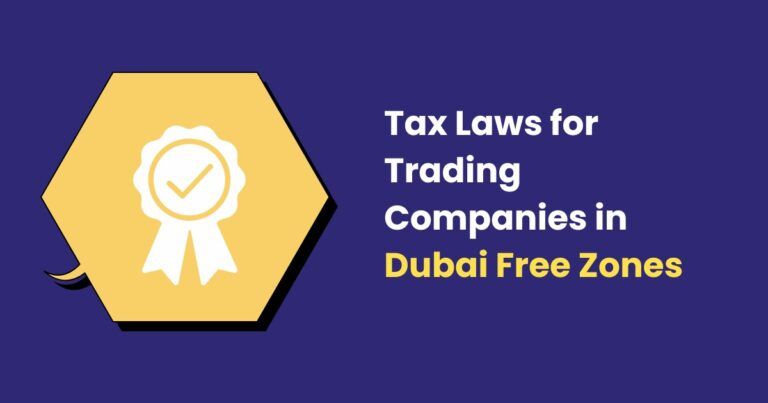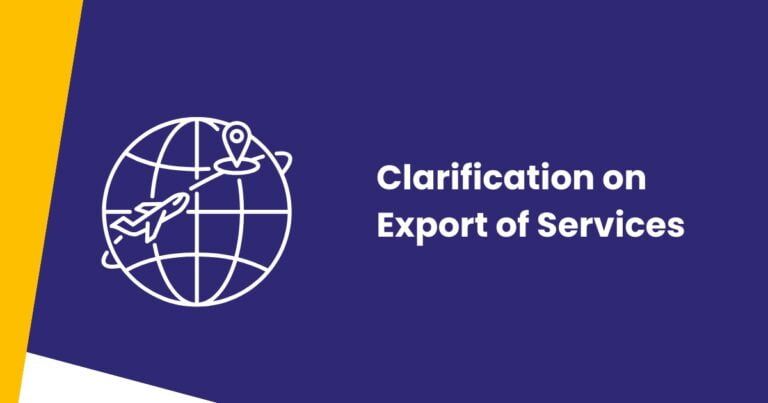Dubai’s many free zones offer an ideal environment for international companies. They want to establish a presence in the UAE. But along with the advantages come certain tax obligations and compliance requirements.
In this guide, we explore the key tax rules that businesses in the Dubai Free Zones need to understand. We will pay VAT, corporate income tax, payroll tax and import and export considerations.
Introduction to Taxation in Dubai Free Zones
Dubai has over 30 free zones specifically created to facilitate global trade. Free zones offer companies attractive benefits such as:
- 100% foreign ownership of the business
- Full exemption from corporate income tax on profits
- Duty-free import and export of goods
- Quick and streamlined company registration procedures
These advantages make free zones increasingly attractive to international business companies. They are looking to establish a presence in the Middle East. However, certain taxes and compliance regulations still apply.
In this guide, we will discuss the main tax implications for companies operating in the Dubai Free Zones, including:
- VAT registration requirements and reporting
- Corporate income tax exemption details
- Payroll taxes on employees
- Importing and exporting considerations
- Administrative fees and licensing costs
Properly understanding these key aspects will ensure your trading company meets its tax obligations.
VAT Registration and Filing Are Still Required
Despite being exempt from corporation tax, retail companies are required to observe VAT laws in the UAE.
VAT registration and filing is mandatory for all companies incorporated in the UAE including those operating with free zone licenses.
A 5% standard rate of VAT was implemented on most sales of goods and services starting from 2018.
Free-zone businesses which have made taxable sales of more than AED375,000 in the previous 12 months must register for VAT.
As a VAT registrant, trading firms operating in Dubai free zones must:
- Charge 5% VAT on all taxable goods and services they sell
- Submit VAT returns to the Federal Tax Authority (FTA) periodically
- Pay the VAT amount owed to the FTA as calculated in the returns
- Maintain detailed records such as tax invoices and sales receipts
It generates revenue for the government from VAT reporting and payments. Failure to properly register and file VAT may result in fines and penalties from the FTA.
Completely exempt from corporate income tax
The main advantage of setting up a trading company in the Dubai Free Zone is complete exemption from tax. The company’s income from trading profits is also tax-free.
The corporate income tax rate for companies in the UAE is currently 9%, rising to 20% by 2023. This applies to profits above AED 375,000
But free zone trading companies pay 0% corporate tax on profits, regardless of the amount.
For example:
XYZ Trading Company onshore has 500,000 AED in annual profit. They must pay 9% tax on 125,000 AED (profits above 375k threshold), equaling 11,250 AED in tax.
ABC Trading Company in a free zone also has 500,000 AED in profit. Their corporate income tax amount owed is 0 AED.
While this demonstrates the substantial tax savings, trading companies should still maintain proper financial statements and documentation.
Payroll Taxes on Employees
When free zone trading companies hire employees, they must comply with the following payroll taxes and regulations:
- Income tax charged on employee salaries
- Mandatory social security contributions
- Health insurance contributions as required by law
These payments must be made on a per employee basis. The amount depends on factors like salary, nationality, visa status, and number of dependents. They apply even if corporate income tax is exempt.
Non-compliance can lead to warnings and fines from regulatory authorities. Working with a payroll specialist ensures you remain compliant on all statutes.
Importing and Exporting Goods
A trading company’s cross-border activities also have tax and compliance implications:
- Customs duties may apply on certain imported goods
- Imports and exports require trade licenses
- Re-export taxes when selling goods to other countries
Engaging an authorized customs clearance agent simplifies compliance for all transactions. This is true when importing into Dubai free zones or exporting abroad.
Even trading between two different free zones within Dubai may incur customs fees or taxes. Understand the regulations before moving goods.
Administrative Fees and Licensing
Free zones provide corporate tax exemption. However, trading companies do pay annual licensing fees and administrative costs such as:
- Registration and licensing fees levied by the free zone authority
- Fees for employee visas and work permits
- Office space rental charges
- Renewal and amendment fees each year
These overhead costs should be factored into the operating budget of a free zone trading company. Accounting firms can assist with license management.
Conclusion
We hope this detailed guide provided clarity on the key tax obligations for trading companies licensed in Dubai free zones. Please reach out if you need any assistance with VAT, corporate, payroll or import/export taxes for your trading firm. Leverage the benefits while remaining compliant.
FAQs
Trading companies in Dubai Free Zones enjoy corporate tax exemptions and customs duty waivers. However, they may still be subject to Value Added Tax (VAT) and other indirect taxes. Understanding these implications is vital for compliance and tax planning.
Trading companies often benefit from incentives. These include corporate tax exemptions and customs duty waivers. Leveraging these incentives effectively can enhance competitiveness and savings.
Compliance involves maintaining accurate records. It involves filing tax returns on time and adhering to local and international tax laws. Professional advice and staying informed are essential for navigating complexities and mitigating risks.
Import/export in Free Zones offers tax advantages. It also provides customs duty exemptions. However, it requires compliance with VAT and customs regulations to avoid penalties.
Effective strategies include robust transfer pricing policies. Due diligence on international tax treaties is important. Seek professional advice to optimize tax positions and mitigate risks.





